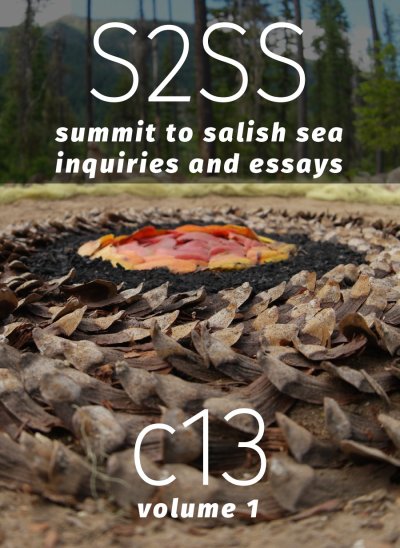Summit to Salish Sea now available in Western CEDAR
Open Access Week may be over, but we still have news to share of how Western is contributing to Open Access every single day. Did you know that Western’s Master Theses collection is the most highly-used collection in Western CEDAR? And now the addition of a brand new journal, Summit to Salish Sea: Inquiries and Essays, demonstrates yet again how WWU graduate students are actively supporting Western’s commitment to enrich academic inquiry and strengthen communities by sharing their work in CEDAR.
This new journal, hosted by Western Washington University's Huxley College of the Environment and the North Cascades Institute, showcases the work of the students in the Masters of Environmental Education program. Articles are based on the final capstone presentations from the end of the graduate students’ programs, and cover a wide range of subjects related to environmental education. Submissions in the journal are separated into two formats: speeches and essays, and some are enriched with multimedia.
“Currently, the journal is oriented around the theory and practice of environmental education with a focus on personal stories and revelations arising from teaching and study of the field,” explained journal founder and editor-in-chief, Nick Stanger. “Topics are as diverse as the student body, including forest-based schools, queer theory and environmental education.”
Stanger is an assistant professor of Environmental Education in the Department Environmental Studies. He came to Western two years ago from the University of Victoria, where he recently received his doctoral degree examining transformative experiences and places. He decided to start this journal when he was searching for a way to document, celebrate, and share the tremendous work that his students put into their culminating projects, which are not finalized in the form of traditionally-defined theses. CEDAR seemed like a perfect fit for a number of reasons, including its capability to support a variety of content formats.
“CEDAR gives me the opportunity to include many of my students’ media, including audio, video, and still photographs,” explained Stanger. And as for what inspired the journal’s title? Recognizing the invaluable relationship between the environment and one’s own learning experiences, the title pays homage to both. As described on the journal site:
“The students' experience ranges from the summits of the North Cascades to the Salish Sea, a binational location, long recognized for its ecological and cultural diversity. Hosted within the traditional territories of many Coast Salish First Nations, this educational experience influences a rich inquiry into the nuances and complexities of environmental education. Whether students are tackling early childhood environmental education, environmental or education philosophy, or cultural explorations in education, their submissions represent a distinctly powerful Masters experience.”
Western currently publishes two journals in CEDAR, (the other one being the Journal of Educational Controversy, hosted by Woodring College), with anticipated growth in this area in the near future. Part of a global movement promoting access to scholarship and creative works, Western CEDAR (an acronym for Contributing to Education through Digital Access to Research) officially launched in the fall of 2014, as a service of Western Libraries and in partnership with Western's Graduate School, Office of the Provost, and Office of Research and Sponsored Programs.
CEDAR serves as a platform to disseminate and promote the research, scholarship, and creative works of Western faculty, students, staff, departments, centers, units, institutes, and programs. There is a social-equity component to Open Access publishing that aligns nicely with the field of environmental education, as barriers which could prevent access to potentially beneficial information are removed, which means research and scholarship shared in CEDAR and created by students, faculty, and staff at Western are made freely available to everyone. By showcasing Western’s scholarly and creative works, CEDAR facilitates their global discovery and promotes sustainable scholarly communication.
“My students are very aware of the limitations of traditional publishing system - and with that - the limitations of environmental education and environmental justice as taught within a university setting,” explained Stanger. “This approach to including their voices within the landscape of environmental education and beyond is an enabling opportunity,” adding that their reactions to the journal have been very positive.
“It has been surprisingly well-received by the students,” said Stanger. “I think it enhances the quality of their work, knowing that their documents will be seen beyond me and the audience that hears their work during the capstone.”
You can find the latest issue of Summit to Salish Sea: Inquiries and Essays, here: http://cedar.wwu.edu/s2ss/. While there is currently only one published volume available, Stanger is currently co-editing volume two, due out March 2017, with an alum from the program.
For more information about the M.Ed. in Environmental Education program, please see https://huxley.wwu.edu/med-environmental-education. Questions about Western CEDAR? Please contact westerncedar@wwu.edu.
